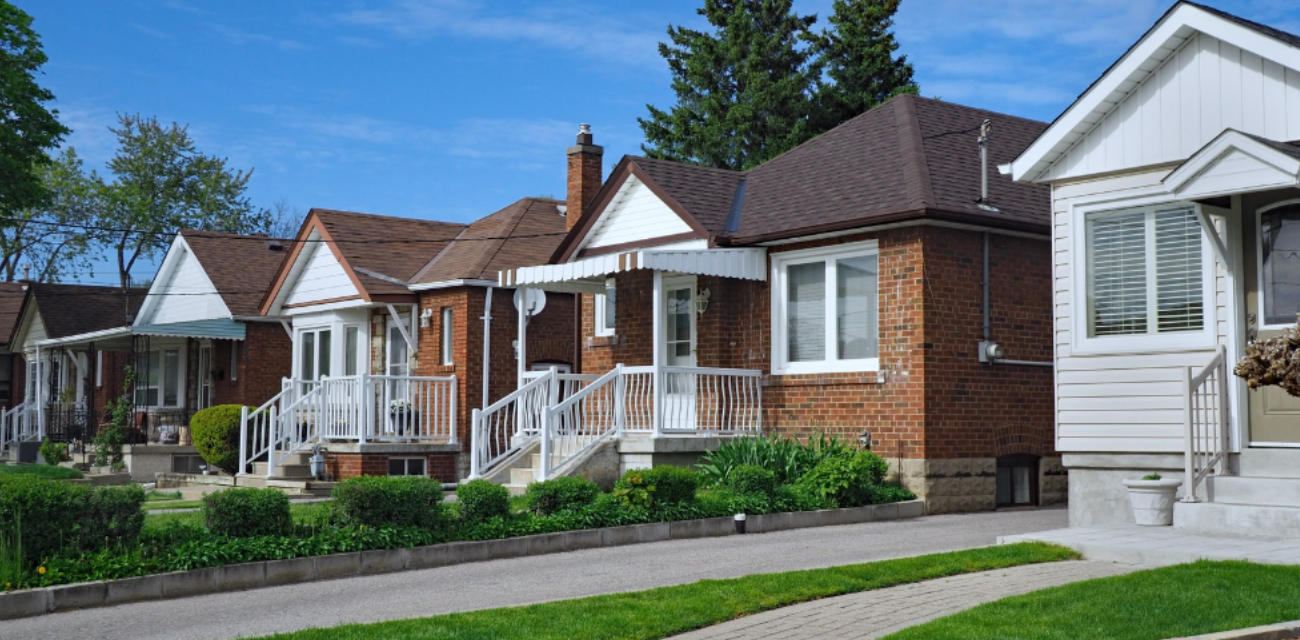$1.65 Billion affordable housing legislation sorely needed

Business, housing, and environmental groups today applauded the introduction of $1.65 billion in new funding aimed at addressing Michigan’s rising housing costs and aging housing stock to make homes more affordable and healthier for families.
House Bills 6551 and 6552—introduced by Rep. Bill Sowerby (D-Clinton Township)—and Senate Bills 1238 and 1239—introduced by Sen. Stephanie Chang (D-Detroit) would construct and renovate affordable, healthy homes for thousands of Michigan families across the state.
The bill package would retrofit low-income homes to remove toxic substances and install energy-efficient insulation, plumbing, and electric appliances. The package would construct energy-efficient low- and middle-income homes. And it would train and retain workers to build and retrofit affordable, energy efficient homes.
While it is unlikely the bills will be acted on before the end of the legislative session, the cross-industry coalition Resilient Homes Michigan is hopeful they will serve as a starting point for discussions with Gov. Gretchen Whitmer and incoming Democratic leadership in the House and Senate on budget priorities for next session.
Michigan’s housing sector is confronted with numerous challenges, including a limited supply of affordable low- and middle-income housing; increasing utility costs; drafty, unsafe homes in need of repair; skilled labor shortages; air pollution; and climate change. The members of Resilient Homes Michigan came together to develop a state funding proposal that would tackle these complex challenges called MI Affordable, Healthy Homes.
This proposal is in sync with the first-ever Statewide Housing Plan created by the Michigan State Housing Development Authority in early 2022.
“With the rising costs of rents, home purchase prices, and utilities, Michigan families are struggling to cope with an affordable housing crisis. This vital funding will help construct more affordable housing for low- and middle-income residents, ensure existing homes are safe and energy efficient, and support and grow Michigan’s construction workforce” said Luke Forest, executive director of the Community and Economic Development Association of Michigan, a member of Resilient Homes Michigan. “We strongly encourage Michigan decision-makers to put the state’s historic budget surplus to work for Michigan families by prioritizing funding for housing.”
According to an independent report, the fair market value for a two-bedroom rental in Michigan is $964, which means a Michigander making minimum wage would have to work two full-time jobs to afford it. At a time when most Michigan households are already being squeezed by rising costs across the board, utility rate increases triggered by fossil fuel cost spikes—nearly 7% for DTE customers and about 14% for Consumers Energy customers—are a significant drain on households’ finances.
“Electric and gas utility bills for Michiganders are set to hit all new high next year as rising costs for methane gas and fossil fuels get passed on to customers,” said Charlotte Jameson, chief policy officer for the Michigan Environmental Council, a member of Resilient Homes Michigan. “To help Michigan families avoid the sticker shock brought on by a dependence on volatile fossil fuels, we should invest in long term strategies like weatherization and energy efficiency and transitioning to efficient, electric heat pumps. These proven strategies are a no-brainer and will save Michiganders money. We applaud our legislative sponsors for prioritizing them in their comprehensive budget proposal.”
Exact language for Sen. Chang’s and Rep. Sowerby’s legislation can be found here and here.
MORE REACTIONS
“As the State of Michigan works to address the need for affordable housing, it is good to see the inclusion of common sense responsible contractor language,” said Tom Lutz, executive secretary-treasurer of the Michigan Regional Council of Carpenters and Millwrights. “Responsible contractor policies help protect the workers tasked with building housing projects, ensuring they are appropriately classified as employees so they are properly insured and paid in accordance with state and federal law.”
“Buildings are responsible for close to 20 percent of Michigan’s greenhouse gas emissions and combustion of fossil fuels indoors from heating and cooking leads to unsafe levels of toxic air emissions in our homes,” said Briana DuBose, director of strategic community initiatives for EcoWorks, a member of Resilient Homes Michigan. “Low-income communities and communities of color are shouldering the impacts of our climate crisis and are the least able to cope with rising costs. We must decarbonize our homes and business equitably by ensuring there is funding for low-income Michiganders to weatherize their homes and move off of harmful and expensive fossil fuels. This proposal, combined with recent federal investments in heat pumps, will meet that need while at the same time ensuring we are building wealth by investing in communities that we have historically left behind.”
“Weatherization is an important tool for reducing home energy costs while ensuring our homes are safe and comfortable. These projects also support and help grow Michigan’s workforce. Advanced energy companies employ close to 120,000 people in Michigan, with the majority of those jobs connected to energy efficiency,” said Dr. Laura Sherman, president of the Michigan Energy Innovation Business Council, a member of Resilient Homes Michigan. “These bills include critical investments in weatherization and workforce development that will grow and support our skilled trades and advanced energy workforce.”
Discover
Power environmental change today.
Your gift to the Michigan Environmental Council is a powerful investment in the air we breathe, our water and the places we love.
Sign up for environmental news & stories.
"*" indicates required fields





